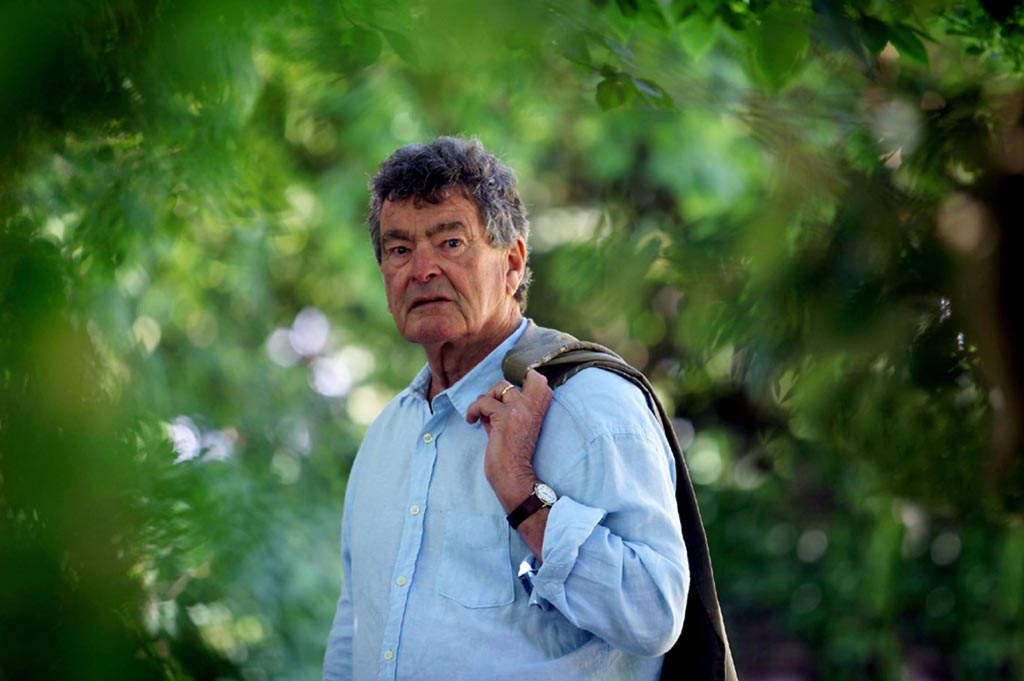|
We are sorry to report that Brian Patten sadly passed away on 29 September this year.
Brian Patten made his name in the 1960s as one of the Liverpool Poets, alongside Adrian Henri and Roger McGough. Their joint collection, The Mersey Sound (1967), has been credited as one of the most significant anthologies of the twentieth century for its success in bringing poetry to new audiences, and is now a Penguin Modern Classic.
His books have since been translated into many European language. An accomplished performer, he has performed his work in venues as varied as The Islamic Students Union in Khartoum and the Royal Festival Hall on London’s South Bank, and over the years he has read alongside such poets as Pablo Neruda, Allen Ginsberg, Stevie Smith, Laurie Lee and Robert Lowell.
Although - especially in performance - Patten’s style contains much humour, his work is generally lyrical and his subjects are primarily love and relationships. His Collected Love Poems draws together his best work in this area. Charles Causley once commented that the collection "reveals a sensibility profoundly aware of the ever-present possibility of the magical and the miraculous, as well as of the granite-hard realities. These are undiluted poems, beautifully calculated, informed - even in their darkest moments - with courage and hope." [ poetryarchive.org ]
Brian Patten was born in 1946 in Liverpool, and grew up in a working class neighbourhood, now long demolished. He left school at fifteen, becoming a junior reporter on The Bootle Times, while writing the occasional music column for the local music paper, The Mersey Beat. One of his first pieces included a report about McGough and Henri. At sixteen he edited and produced the magazine underdog, which gave a platform to the underground poets in Liverpool at that time. Many of the iconic poems in Penguin Modern Classics ground breaking anthology, The Mersey Sound first appeared in the magazine. underdog went on to print the work of international poets such as Allen Ginsberg and Andrei Voznesensky. [ HERE ]
Patten ‘gave up the day job’ at 18 and for a while lived rough in Paris, paying his way by writing poems in coloured chalk on the pavements beside the city’s pavement artists.
His first solo collection was Little Johnny's Confessions, 1967, published when he was twenty-one years old. Since then he has published numerous collections, including Vanishing Trick and Armada, which includes some of his most striking poems, focusing on the death of his mother and his memories of childhood. Penguin publish his Selected Poems and Harper Perennial one of his most important books, The Collected Love Poems.
Patten is also well-known for his best-selling poetry collections for children, most famously Gargling with Jelly(1985) and Thawing Frozen Frogs described as a vigorous torrent of verbal invention by Books For Keeps
His collection for children and adults, The Blue and Green Ark: An Alphabet for Planet Earth, won a Cholmondeley Award in 2002. He has also written a novel for children, Mr Moon's Last Case (1975), which won an award from the Mystery Writers of America Guild. Brian Patten also edits poetry anthologies, most notably (2006) The Puffin Book of Modern Children's Verse. Other books for children include The Big Snuggle-up with illustrations by Nicola Bayley (Andersen Press, 2011) and Monster Slayer, a simplified version of Beowulf, with illustrations by Chris Riddell,)
[ barringtonstoke.co.uk ]
His life story as one of the three Liverpool poets is told by Phil Bowen in A Gallery To Play To: The Story of The Mersey Poets (Liverpool University Press, 2008) [ liverpooluniversitypress ] for an in-depth review of the book by John May see [ The Generalist ]
Brian has been honoured with the Freedom of the City of Liverpool and is a Fellow of the Royal Society of Literature, and of both Liverpool University and John Moores University as well as The Open University.
RIP Brian Patten: 7 February 1946 ~ 29 September 2025 |
